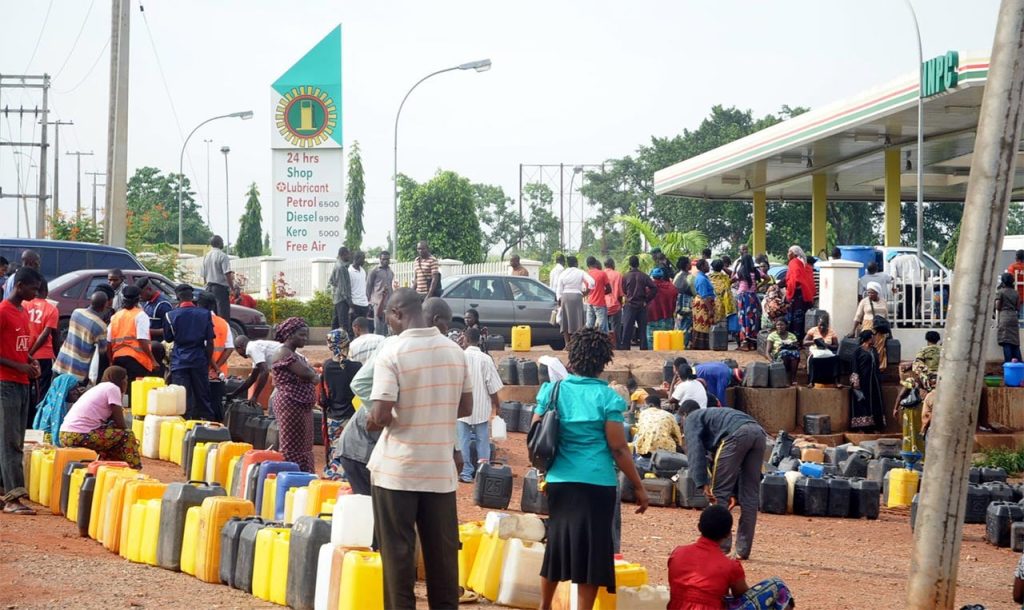In a nation blessed with abundant natural resources, including crude oil, it is both ironic and disheartening that in 2024, Nigerians still endure the agony of queuing for hours at filling stations to buy Premium Motor Spirit (PMS) also known as petrol.
The ongoing fuel scarcity has not only disrupted daily life but has also increased the economic hardships faced by millions of citizens. The Nigerian National Petroleum Company Limited (NNPCL) responsible for regulating the oil and gas sector keeps giving excuses year in and year out. Many citizens have complained the sight of long queues at fuel stations is a reminder of the persistent inefficiencies and mismanagement that plague the oil sector.
This situation is nothing short of a national scandal for a country that ranks among the world’s top oil producers. In 2021, a total of $1.5 billion was approved for turn-around maintenance of the Port Harcourt Refinery. Despite significant investments and numerous reforms from successive governments, the reality on the ground remains uncertain. The government’s inability to ensure a stable fuel supply has left many Nigerians frustrated, questioning the very competence of those managing the sector.
The impact of this prolonged fuel crisis extends far beyond the inconvenience of waiting in line. Transport fares have skyrocketed, placing an additional financial burden on already struggling families. Businesses, especially those reliant on power, are feeling the brunt of the situation, with many forced to cut back on operations or shut down entirely. The ripple effects are devastating, further crippling an economy that is already on shaky ground.
What makes this situation even more troubling is the fact that the government consistently promotes its investment and reforms, particularly the removal of subsidy in the oil sector, as a sign of progress. Yet, these investments and reforms have not translated into tangible benefits for the average Nigerian. Instead, Nigerians are left to wonder where the billions of naira allocated to the sector have gone.
It is time for the government to take decisive action. The current scarcity should serve as a wake-up call, highlighting the urgent need for comprehensive reforms in the oil and gas sector. Transparency, accountability, and efficiency from NNPCL must be at the forefront of any efforts to resolve this issue.
As we look towards the future, the government must prioritise the needs of its citizens over the interests of a few. The time for excuses is over. We must demand more from our leaders and hold them accountable for their promises. Only then can we hope to see an end to this reprehensible cycle of fuel scarcity and its devastating impact on our nation.
Nigerians should not have to endure the indignity of queuing for hours just to access a basic necessity. In 2024, this is unacceptable. The government must act now to ensure that the fuel crisis becomes a thing of the past.
